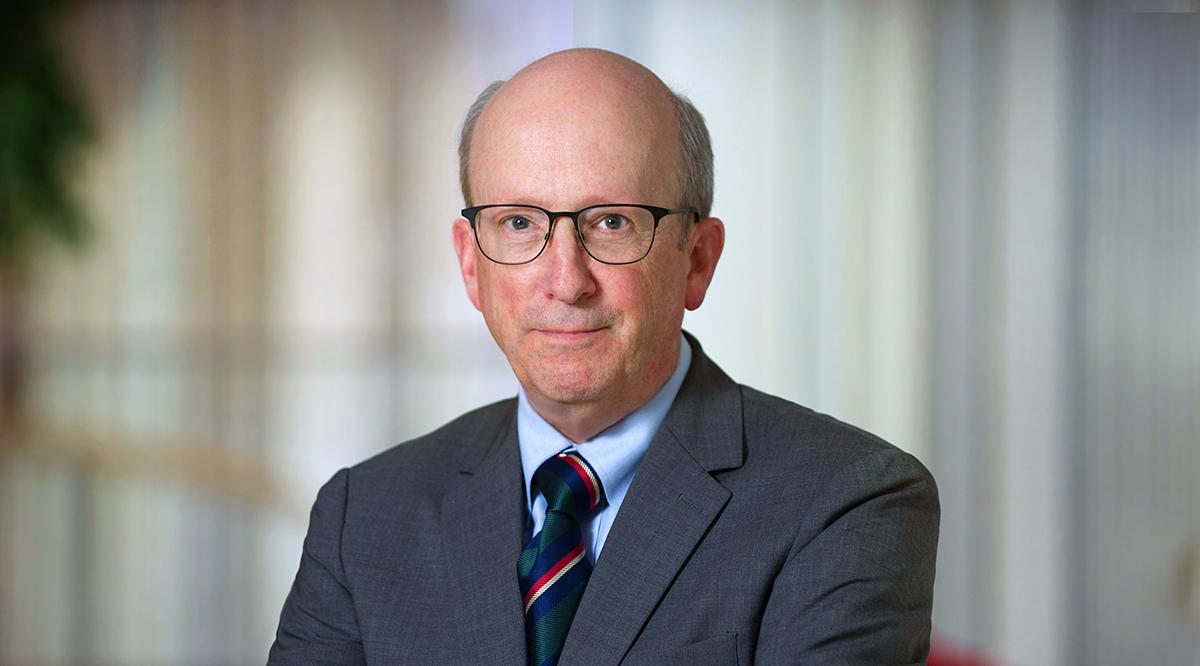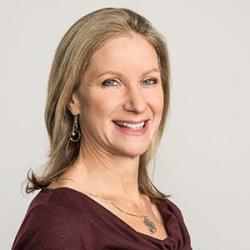Ross McKinney Jr., MD, has witnessed some remarkable scientific achievements during his 40-plus years in academic medicine. When he first started his career as a pediatric infectious diseases physician and researcher at Duke University School of Medicine in the 1980s, the life expectancy of an HIV-positive child was 2-3 years. Today, children with HIV can live a relatively normal life, thanks in part to groundbreaking research McKinney led into the use of antiretroviral drugs to treat HIV in children.
Likewise, advancements in cancer research and treatment have changed the prognosis and life expectancies of millions of people. And, more recently, the COVID-19 vaccines were developed in record time because the basic scientific research underpinning them had been steadily advancing for two decades.
“The effect of what the NIH and science can do and has done is remarkable,” says McKinney, who, as the AAMC’s chief scientific officer since 2016, has led an array of AAMC programs that support medical research and the training of scientists in academic medicine.
Scientific research has, indeed, changed greatly since McKinney earned his medical degree from the University of Rochester School of Medicine & Dentistry in 1979. McKinney completed his internship and residency in pediatrics at Duke University School of Medicine, did a fellowship in pediatric infectious diseases under the tutelage of renowned pediatric HIV expert Catherine Wilfert, MD, and then joined the faculty at Duke. McKinney ultimately served as chief of the division of infectious diseases in the Department of Pediatrics, vice dean for research in the School of Medicine, and director of the Trent Center for Bioethics, Humanities, & History of Medicine. Among his many career highlights, McKinney was first author on the key Phase 1 and 2 studies on the use of zidovudine (AZT) in children; he also conducted research on the natural history, prevention, and treatment of pediatric HIV disease.
On Nov. 1, McKinney will retire from the AAMC, capping a distinguished career in academic medicine and having led the organization’s scientific cohort through a global pandemic, a multiyear campaign to increase NIH funding for scientific research, and efforts to improve the prospects for early career scientists, among other challenges.
McKinney recently sat down with AAMCNews to discuss these highlights and more.
In late February/early March of 2020, I recall you saying that if a pandemic happened, schools and businesses would close, and that we all ought to stock up on at least a month’s worth of food and medicine. Clearly, you knew so much more than we did about pandemics and infectious diseases. What were your thoughts during those early days? Did you have a gut feeling about where we were headed?
I thought there was a very high probability that we were going to face what we faced — that the mortality was going to be high, that the reality would be that we would end up wearing masks and having to stay home, not gather in places, that stores might close, that we might have a period of time where travel was difficult. I put all of those things into a Powerpoint slide and I shared them with a PhD scientist in my cluster. To paraphrase, she said, ‘Oh, You should tame that down, it can’t be that bad.’ And it ended up being worse.
What was the role of the AAMC during that time?
I can think of a few areas where I feel like we made a difference. We provided information through our newsletter that was reliable and widely disseminated. We were very impactful in trying to help deal with the diagnostics problem. Originally the CDC had a test and they were requiring everybody else to run anything they did through the CDC lab. The CDC test turned out not to work, but the FDA had restricted everybody else from advancing development of tests or at least charging for it, so it meant you couldn't get COVID testing done in time to make a difference. So as the wave hit, and because much of the spread was asymptomatic, nobody knew who was infected. The person you were talking to could be exactly the person who makes you sick, even if they look fine and feel fine. So we put pressure on the FDA and the CDC to try and allow academic medical centers to be performing and charging for the diagnostics that they could do and do well. We also lobbied to make sure the NIH was well funded through this. We were constantly communicating with the FDA about lack of supplies, particularly diagnostic supplies, and [whether they] could help us figure out how to direct supplies so that the labs that physically could do the testing could be able to do the testing. In all those ways, it felt like we were contributing.
We also were providing a lot of information [directly to the public through media interviews, press conferences, videos, and online events] around vaccines and helping people understand how effective [COVID-19] vaccines were. Originally, you had to clamor to be able to get them because people wanted them so badly and there was limited supply.
Is there anything the AAMC or the nation should have done differently during the pandemic, particularly as interest in the vaccines waned due to the spread of misinformation?
The trouble was, the misinformation was disinformation. It was incorrect information being provided in order to achieve a [political] end. The suppliers of disinformation found it advantageous to say that the elites are out to get you and we're going to guide you to wisdom that is not from the elites. The pharmaceutical companies are going to make so much money off those vaccines; that's the reason that the government's favoring the vaccines. It's all about companies making money. And people bought into that. Why did they buy into that? Well, they have a fundamental distrust of government that the government wasn't doing much to alleviate. And of late, the pharmaceutical companies have a terrible record of profiteering.
Were there things we could have done differently? Well, we tried to message and message clearly… But it was an era that was striking for how much particularly governmental systems worked for political interest rather than public health.
There is a fundamental dilemma in public health. When you are working for public health, you are saying you must restrict private individual rights in order to benefit the collective good. For example, quarantining a person with tuberculosis so they don’t spread the disease. On a large scale, it can be unpopular.
So we still have this misinformation problem. What can we do now to counter the spread of misinformation, post-pandemic?
People are susceptible to misinformation when they don’t know [the truth]. So we have to, in a sustained way, provide reliable information that is consistent, that is clear, and that is answering the questions that are being asked by the people whose opinions we'd like to change. In order to do that, we have to listen first. Our best tool at the moment for dealing with misinformation in the medical arena are people’s own doctors and primary care providers, because they tend to trust their primary care providers. The more we can use providers at that level, the more effective we’ll be.
When you first arrived at the AAMC in 2016, you identified the three biggest challenges facing medical researchers: excessive regulatory burdens; the need to better integrate research and clinical care; and greater incentives to attract new researchers to the field. Do you think we’ve made any progress in addressing those challenges?
When we actually started to try and figure out the regulatory burdens, they weren't as bad as we thought they were. Integrating research and clinical care is still a huge problem and we saw that play out during the pandemic. Our health systems don't integrate clinical research very efficiently. What tends to happen is every institution does their own small trial. They can't use the medical record because [electronic health record software systems] EPIC and Cerner are not designed as research tools. And people are still guarding their information as proprietary… So we have a terrible system for gathering clinical research information and consolidating it. And you can compare our experience with the United Kingdom (UK) where they have a single medical records system and it can be used for research. They had something called the DisCoVeRy trial, where they just kept clicking through clinical trials for treatment after treatment of COVID-19. In the U.S., we finally put together something at the NIH level, which found a few centers around the country willing to participate and then the group chose the wrong trials, ones that didn’t really work. So the big central U.S. COVID-19 treatment research program never did change much. It wasn't well integrated. It didn't work. The UK just blew our socks off, so we have a huge way to go in terms of integrating research and also answering things like how you do research informed consent in the context of clinical care.
And then attracting early career scientists — it’s gotten worse. The number of postdocs has been going down. The number of postdocs who go into academic positions has been going down. With NIH paylines at some institutes well below the 10th percentile, industry is more appealing. If your career depends on getting an NIH grant, and you see that if you go the academic route, you have a 1 in 10 chance of actually being able to have a career and it's not in your control, it's basically a lottery ticket, I’ll go for that industry job, thank you very much… We've made it incredibly unappealing. And as a result, there's a huge downturn in the number of people looking to get into academic careers. It's going to mean we probably need to pay our graduate students more, we probably need to pay our postdocs more. When we do, that means there are going to be fewer postdocs and fewer graduate students because we aren't going to be able to afford to fund as many. So I’m expecting to see, in fact, a shrinkage in the size of the research operations across the country in order to get to the scale that we can afford.
And when the government is talking about giving us less money rather than more — and when the main way that you support research operations is out of clinical revenue, and we have things like 340B [a federal program that allows safety net hospitals to purchase drugs at a discount] and co-payments all under threat — it’s a fairly bleak looking time for research.
What, exactly, is the value of scientific research? Is there any good news?
When you look at things like cancer, and you look at how much better people are doing now, with cancer, it makes a difference. Look at the Nobel Prize in Physiology or Medicine [given in 2023 to Drew Weissman, MD, PhD, and Katalin Kariko, PhD, two scientists who discovered how mRNA interacts with the immune system, leading to the rapid development of COVID-19 vaccines]. That vaccine was developed lickety-split because of basic science that had been done before the epidemic. When I started medical research in the ’80s, everybody who had HIV died and now they're living normal life expectancies. We should look at those remarkable discoveries and not say, ‘Oh, it's fixed now.’ No, it’s, ‘How much more can we accomplish?’ There are so many things where we're continuing to make progress and we need to keep working at it.

